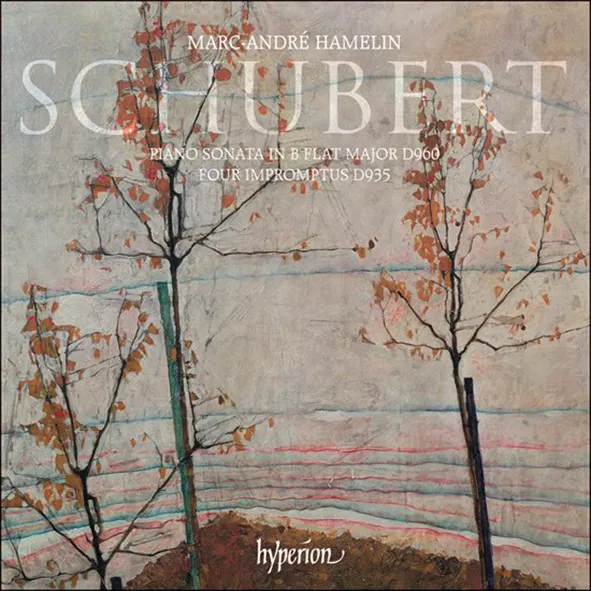
Schubert Piano Sonata in B flat; Four Impromptus, D935 Marc-André Hamelin (piano) Hyperion CDA68213 81:52 mins
This is, rather surprisingly, Marc-André Hamelin’s first Schubert album – two of the composer’s greatest late piano works given enthralling accounts, beautifully recorded, but not without some controversial details. In the B flat Sonata, Hamelin takes Schubert’s opening instruction Molto moderato to mean the broadest tempo, accentuating the first movement’s heavenly lengths and otherworldly qualities. His playing is stunningly beautiful with some wonderfully veiled timbres, particularly when the music modulates to distant keys. But did Schubert really intend us to hear this as a slow movement lasting well over 22 minutes – although Sviatoslav Richter’s is even slower, coming in at 24-and-a-half minutes – especially since the ensuing and poignant Andante sostenuto surely fulfils this specific function in the work’s overall structure?
The rest of the Sonata is much more compelling. Hamelin’s articulation of the Scherzo, for example, is wonderfully delicate and charming, and the way he achieves the necessary contrast in mood in the Trio with his strong projection of the bass notes is quite wonderful.
There are brilliant moments, too, in Hamelin’s performance of the D935 Impromptus. I was particularly bowled over by the variety of sound and character that he extracts from the Rosamunde Variations, and he brings tremendous exhilaration and energy to the final Hungarian-style Impromptu. More questionable is the slightly understated approach to the stormier sections of the First Impromptu. Moreover, Hamelin’s decision to add some bars of his own to the coda is bound to upset purists, though it sounds perfectly convincing to my ears.
Erik Levi